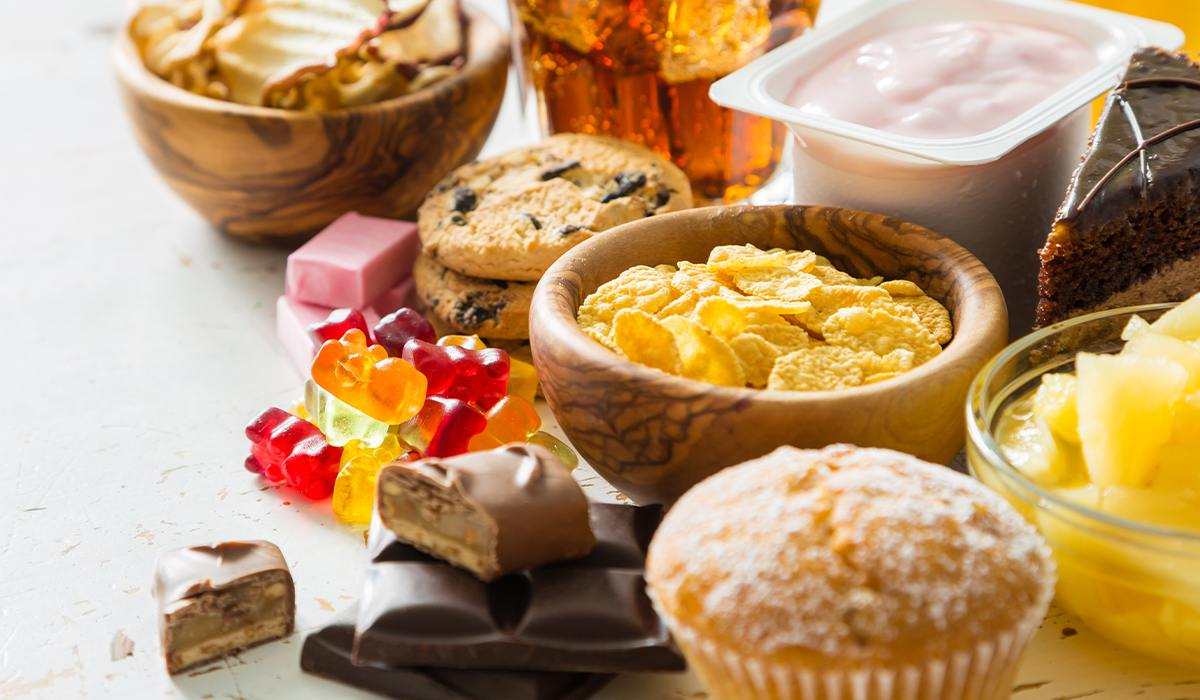Are these foods really bad for your gut?
Emma & Beth - Nutracheck Nutritionists | 29 Apr, 2025
We talk a lot about which foods are good for gut health, but which ones are bad for your gut? Here we take a look at some of the foods that can hinder a healthy gut function, as well as exploring the science behind why this is.

Ultra-processed foods
- High in additives – some ultra processed foods contain additives such as emulsifiers and artificial sweeteners. There is some evidence to suggest these potentially alter the gut microbiota composition and may promote inflammation in the intestinal lining.
- Lack of fibre – most ultra processed foods are low in dietary fibre and as we know, a diet low in fibre can negatively impact gut health.
- Saturated fats – ultra-processed foods frequently contain unhealthy saturated fats that can contribute to gut inflammation, which is detrimental to the gut barrier function.
- Not all UPFs – not all UPFs are this way. A lot of the food available to us in our modern diets are either UPFs or processed. Which doesn’t inherently make them bad. Making the right choices and reducing our intake of foods with additives, saturated fats, refined sugar etc. is the best way to look after gut health.

Refined sugar and sweets
- Impact on microbiota – excessive intake of refined sugars can disrupt the balance of gut bacteria, favoring harmful strains over beneficial ones. This can lead to issues such as bloating, gas, and irregular bowel movements.
- Artificial sweeteners – sweeteners like aspartame and sucralose in very early stage studies, have shown some potential to negatively affect gut microbiota. They suggest that artificial sweeteners may alter the gut microbiome in a way that predisposes individuals to metabolic diseases. However, further study is still needed here.

Red and processed meats
- High saturated fat content – red meats, especially when processed, are high in saturated fats. This can lead to increased inflammation and a higher risk of diseases like colon cancer.
- N-nitroso compounds – processed meats (sausages, salami bacon etc.), often contain nitrates and nitrites, which can be converted into harmful N-nitroso compounds during the processing and manufacturing of the meats. These compounds have been linked to an increased risk of gastrointestinal cancers.

Alcohol
- Gut barrier integrity – excessive alcohol consumption can weaken the intestinal barrier, allowing toxins and bacteria to pass into the bloodstream. This can lead to inflammation and a condition known as “leaky gut.”
- Microbial imbalance – some studies suggest that alcohol alters the gut microbiota composition, potentially reducing the diversity of beneficial bacteria and promoting the growth of harmful bacteria. Again, further study is required.

Fried foods
- Unhealthy fats – fried foods are often high in unhealthy fats, which can disrupt the balance of gut bacteria and increase inflammation.
- Difficult to digest – the high fat content can slow down digestion, leading to gastrointestinal discomfort.
As with all dietary decisions, every individual is different - so something that may negatively impact one person’s gut may not produce a bad reaction for somebody else. In general, though, the foods discussed in this feature should be enjoyed only in moderation for anyone keen to improve the health of their daily gut function.

Nutritionists Emma White (ANutr), MSc Human Nutrition and Beth Furness (ANutr), BSc Nutrition and Health, are passionate about diet and how this impacts overall health. They support evidence-based advice around nutrition and aim to help everyone better understand how different nutrients affect the body and long-term health status.











